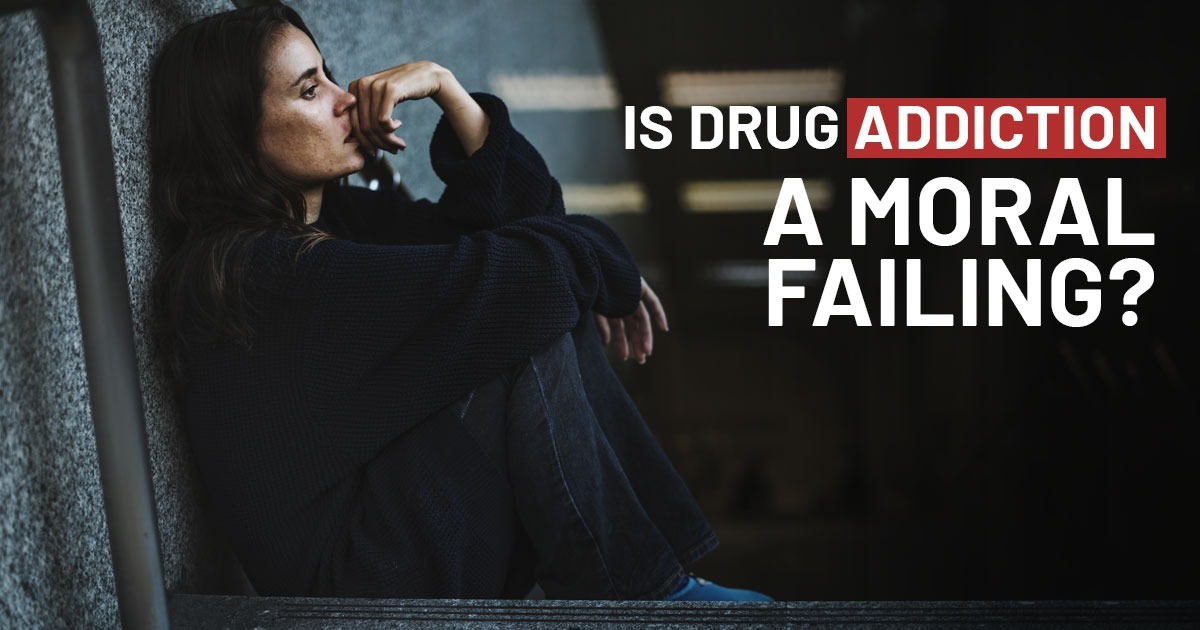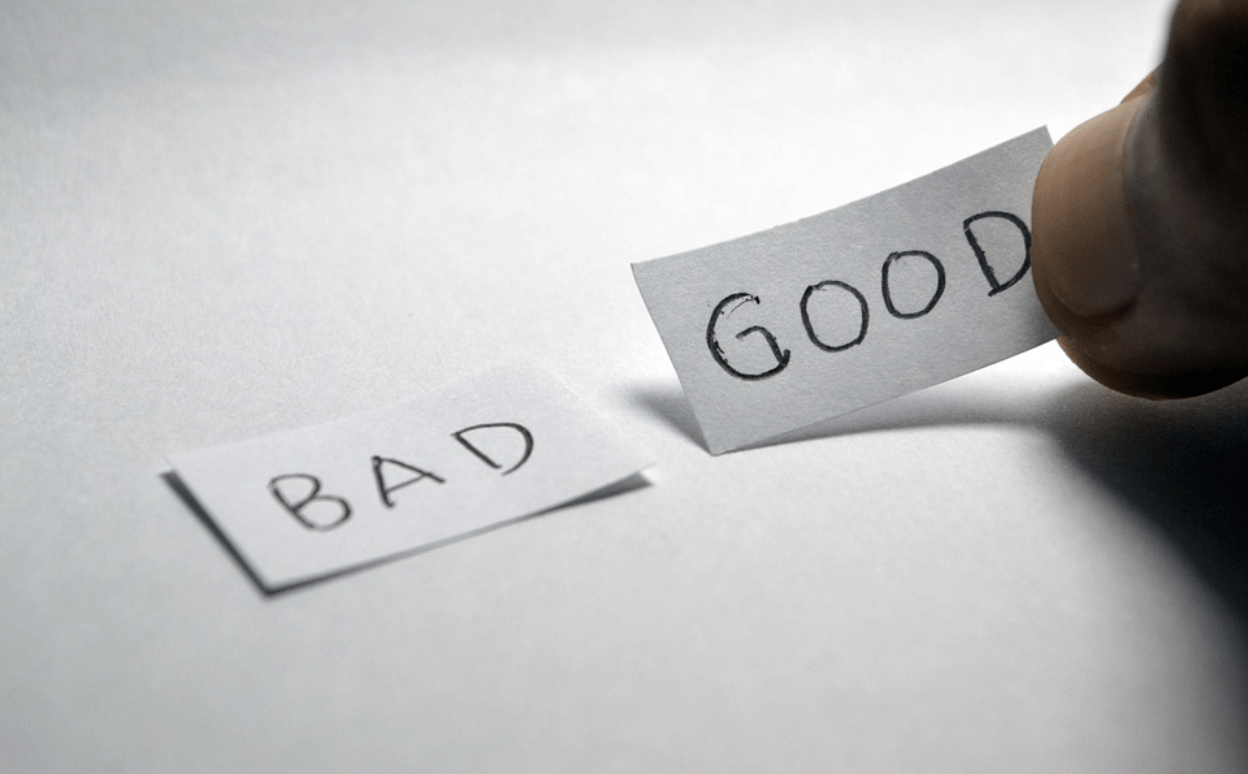
Is drug addiction a moral failing? Researchers have been looking at addiction and the underlying causes since the 1930s. In that time, we have learned so much about what addiction is and what it isn’t.
First and foremost, no, addiction is not a moral failing. Shame is often so much intertwined with addiction, and you may have low self-esteem, guilt, and a sense of low self-worth. These feelings can all contribute to the ongoing cycle of addiction, making it harder to break.
By recognizing the reality that drug addiction is not a moral failing and is a disease, you can begin to see that you deserve treatment for your illness.
Addiction, also known as a substance use disorder, is an illness as characterized by The American Health Association, The National Institutes of Health, and the World Health Organization.
Evidence-based treatment also tends to be highly effective in treating substance use disorders based on your unique needs.
The Physical Effects of Addiction
Addiction relates a lot to your brain chemistry. Genetics and other underlying biological elements also raise your risk of developing an addiction. These differences are part of why addiction is a disease. The differences are also why someone might use recreational drugs and never become addicted, while others become addicted after using a substance only a few times.
- When you use certain substances, they create big, artificially driven dopamine surges.
- Those dopamine surges teach your brain to keep seeking out the experience making them, such as drugs or alcohol.
- Your brain compels you to seek out the substance at the expense of other things in your life.
- When you consistently use drugs or even alcohol, it impacts your ability to feel pleasure.
- The reason is that your brain releases smaller amounts of dopamine on its own, without the drugs.
- Your brain center is less receptive to healthy rewarding activities like exercise or a good meal. Your brain is wholly altered at this point.
Because of the brain changes, you develop a tolerance. You need more of whatever the substance is just to keep yourself operating at a new “normal” baseline.
Brain Changes Cause Behavioral Changes
Researchers in past decades have begun looking at brain imaging studies of people with addictions. They find that areas of the brain affected by addiction include decision-making, learning and memory, judgment, and behavioral control.
The changes in these parts of the brain can alter the functionality of your brain, contributing to destructive, compulsive behavior.
Addiction creates cravings and physical symptoms as well, known as dependence.
Addiction As a Chronic Disease
Science tells us addiction is not just a disease but a chronic one. We can, in many ways, compare it to heart disease or diabetes.
The similarities between addiction and other chronic illnesses include:
- Both conditions affect the functionality of critical organs. For addiction, it’s the brain, whereas it’s the heart in cardiovascular disease.
- Chronic illnesses decrease quality of life and can, without proper treatment, shorten your life.
- While both are diseases, there are preventable elements. For example, most chronic illnesses have contributing risk factors such as eating certain foods or not getting enough exercise. With addiction, the risk factor is initially using an addictive substance.
- Chronic illnesses and addiction aren’t necessarily curable but are highly treatable. By getting treatment as early on as possible, you can reduce or eliminate the symptoms.
- You can also prevent further damage because chronic disorders and addiction are both progressive.
- The longer your addiction goes without treatment, the more significant the effects and consequences will be.
While drug addiction begins with an initial decision, we also know that people don’t willingly want to deal with the destruction addiction ultimately creates. If addiction were as easy as deciding to stop or having willpower, there wouldn’t be many overdose deaths each year or relapses.
- Some of a person’s inability to stop using drugs or alcohol is because of problems in the function of the prefrontal cortex in the brain.
- The prefrontal cortex controls executive function. Executive functions include monitoring your behavior and delaying reward.
- People with substance use disorders often have an overly adverse reaction to stress because of deficits in their prefrontal cortex, putting them at risk for addiction.
- When there’s an issue in the prefrontal cortex, a person often has a high threshold for regular types of pleasure. They need something “more” to cause them to feel joy, such as drugs or alcohol.

Substance Use Disorder Risk Factors
There isn’t one specific cause for developing a substance use disorder. Multiple factors often converge.
- Around 40-60% of the risk of becoming addicted to a substance comes from biological factors. Biological factors include genes, gender, and ethnicity.
- The developmental stage is also relevant. The younger you are when you start using addictive substances, the more likely you are to develop an addiction in adulthood.
- The environment can be a risk factor. Environmental factors include family dynamics and relationships, your home environment, and your social group.
Specific addiction risk factors include a family history of addiction and mental illness, a history of abuse, and a chaotic home environment.
What Does This Mean for Overcoming a Substance Use Disorder?
When you have a substance use disorder, first, you need to let go of the shame and the guilt. Those are things you can begin to work through in treatment. When you learn more about the underlying contributors to addiction and the fact that it is a disease, it’ll help you with these feelings.
You also have to realize that you aren’t weak because you can’t simply stop using substances.
As is the case with other illnesses, you need the proper treatment plan to address all of your addiction’s complex components.
For example, talk therapy is a way to recognize your negative thought patterns leading to harmful behaviors. You can learn more about triggers in your life and start to build pathways in your brain that will help you deal with those in a healthy way. We can rewire our brains with time and patience.
Your drug addiction treatment plan might also include medication, and it should integrate aftercare planning.
Everyone is unique, and their treatment plan has to reflect that. People relapse after treatment because their counselor didn’t tailor their program to their needs.
Whether you’ve tried rehab before and relapsed, or you’re considering it for the first time, the only thing to know is that what you’re going through isn’t a personal or moral failure. You should also know that you’re making the best first step when you admit that you have a problem and seek help for it. Reach out to the team at Anchored Tides Recovery by calling 866-600-7709 to learn more.































